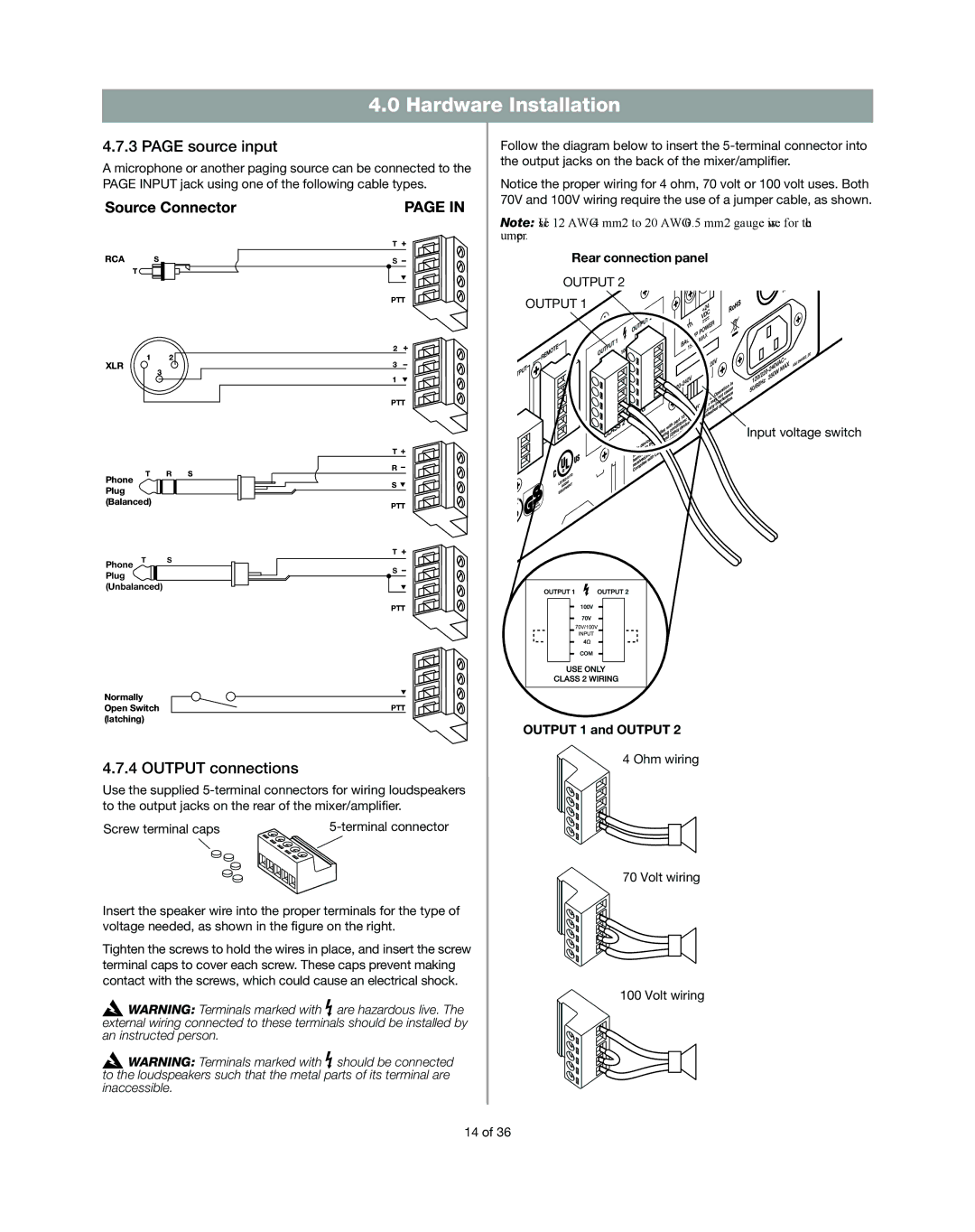
4.0 Hardware Installation
4.7.3 PAGE source input
A microphone or another paging source can be connected to the PAGE INPUT jack using one of the following cable types.
|
| T |
RCA | S | S |
T |
|
|
|
| PTT |
|
| 2 |
| 1 | 2 |
XLR | 3 | 3 |
| 1 | |
|
| |
|
| PTT |
|
| T |
| T | R |
Phone | R S | |
| S | |
Plug |
| |
|
| |
(Balanced) | PTT | |
|
| |
|
| T |
Phone | T | S |
Plug |
| S |
|
| |
(Unbalanced) |
| |
|
| PTT |
Normally
Open SwitchPTT (latching)
4.7.4 OUTPUT connections
Use the supplied
Screw terminal caps |
Insert the speaker wire into the proper terminals for the type of voltage needed, as shown in the figure on the right.
Tighten the screws to hold the wires in place, and insert the screw terminal caps to cover each screw. These caps prevent making contact with the screws, which could cause an electrical shock.
![]() WARNING: Terminals marked with
WARNING: Terminals marked with ![]() are hazardous live. The external wiring connected to these terminals should be installed by an instructed person.
are hazardous live. The external wiring connected to these terminals should be installed by an instructed person.
![]() WARNING: Terminals marked with
WARNING: Terminals marked with ![]() should be connected to the loudspeakers such that the metal parts of its terminal are inaccessible.
should be connected to the loudspeakers such that the metal parts of its terminal are inaccessible.
Follow the diagram below to insert the
Notice the proper wiring for 4 ohm, 70 volt or 100 volt uses. Both 70V and 100V wiring require the use of a jumper cable, as shown.
Note: Use 12 AWG (4 mm2) to 20 AWG (0.5 mm2) gauge wire for the jumper.
Rear connection panel
OUTPUT 2
OUTPUT 1
Input voltage switch
OUTPUT 1 and OUTPUT 2
4 Ohm wiring
70 Volt wiring
100 Volt wiring
14 of 36
